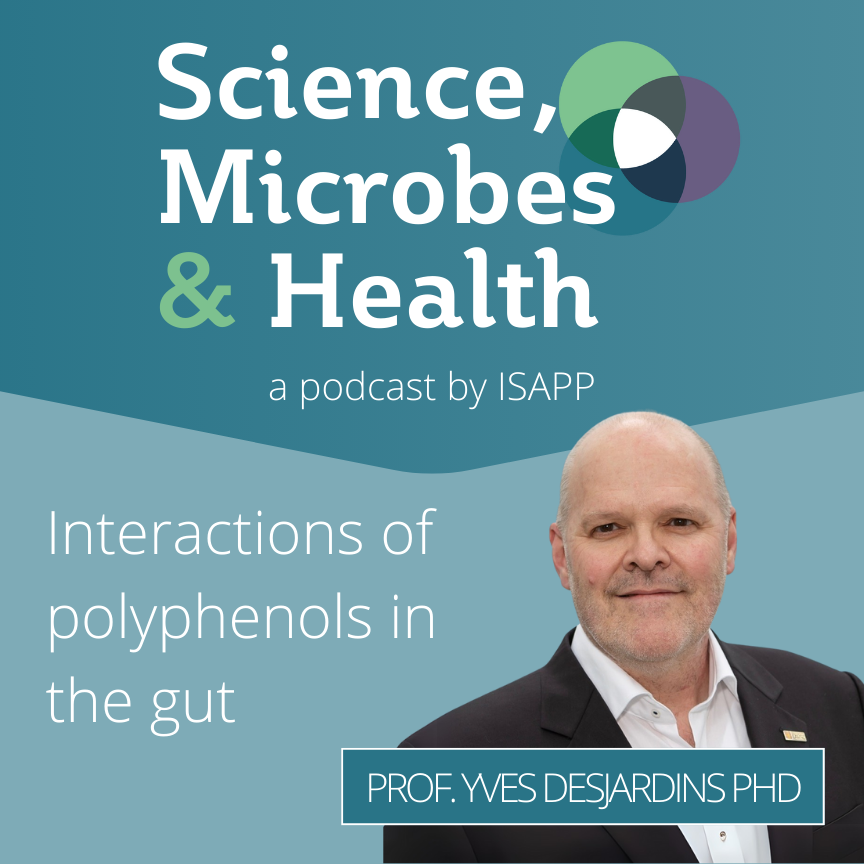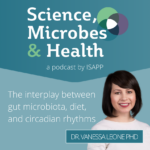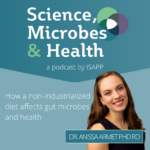Interactions of polyphenols in the gut, with Prof. Yves Desjardins PhD
Podcast: Play in new window | Download
Subscribe: Apple Podcasts | Spotify | RSS
This episode features Prof. Yves Desjardins PhD from Laval University in Canada. Prof. Desjardins, an agrologist by training, explains that polyphenols are metabolites synthesized by plants and present in the plant foods we consume. When humans consume polyphenols, we absorb a small fraction (around 5%) of them in the upper gastrointestinal tract, but most of them reach the colon and interact in various ways with the gut microbiota. They have two main effects in the gut, which appear somewhat contradictory: antibacterial effects and a prebiotic-like effect. In the latter case, polyphenols interact with the host epithelium to induce mucin production, creating a niche for certain bacteria to grow. Typical bacteria that increase under these circumstances are bifidobacteria and Akkermansia muciniphila. In these ways, polyphenols have an impact on certain microorganisms and on the microbiome as a whole. In the future, supplements with polyphenols and fiber may be designed to help manipulate the microbiome in a certain way. Currently there are many health benefits associated with polyphenols. The primary benefit is for cardiometabolic health, and some studies also show benefits for cognition.
Episode abbreviations and links:
- Paper proposing the term duplibiotic: Polyphenol-Mediated Gut Microbiota Modulation: Toward Prebiotics and Further
- COSMOS trial on cocoa polyphenols for preventing cardiovascular events and mortality: Effect of cocoa flavanol supplementation for the prevention of cardiovascular disease events: the COcoa Supplement and Multivitamin Outcomes Study (COSMOS) randomized clinical trial
- Study from Desjardins lab on how cranberry polyphenols protect mice against an obesogenic diet: A polyphenol-rich cranberry extract protects from diet-induced obesity, insulin resistance and intestinal inflammation in association with increased Akkermansia spp. population in the gut microbiota of mice
- 2025 paper on how polyphenols are mechanistically connected to metabolic health: Therapeutic Potential of Cranberry Proanthocyanidins in Addressing the Pathophysiology of Metabolic Syndrome: A Scrutiny of Select Mechanisms of Action
- Study on how polyphenols can influence host infections: UPEC Colonic-Virulence and Urovirulence Are Blunted by Proanthocyanidins-Rich Cranberry Extract Microbial Metabolites in a Gut Model and a 3D Tissue-Engineered Urothelium
- Study on how berry polyphenols can improve cognition in people with mild cognitive impairment: Effects of a polyphenol-rich grape and blueberry extract (Memophenol™) on cognitive function in older adults with mild cognitive impairment: A randomized, double-blind, placebo-controlled study
About Prof. Yves Desjardins PhD:
Yves Desjardins is a full professor at the Institute of Nutrition and Functional Foods, Laval University, Québec, Canada. He holds the NSERC/Symrise Partnership Chair on the prebiotic effects of polyphenols (PhenoBio+). Trained in plant physiology, his research focuses on the phytochemistry and functionality of plant bioactives. He has led numerous preclinical and clinical studies on type-2 diabetes, cognitive decline, inflammation, and infections. His current work explores the impact of tannins on gut microbiota, mucosal immunity, and gut barrier function. He has collaborated with the food industry to validate the health benefits of horticultural products (e.g., Urophenol, Glucophenol, Neurophenol). Recognized for his innovative research on fruit polyphenols, he chaired the first International Symposium on Health Effects of Fruits and Vegetables (FAVHEALTH 2005), the OECD Symposium in Lisbon (2010), and organized the 2017 International Congress on Polyphenols and Health in Québec City.
Sign up for our monthly newsletter
Follow us on LinkedIn, Bluesky, X, Facebook,







